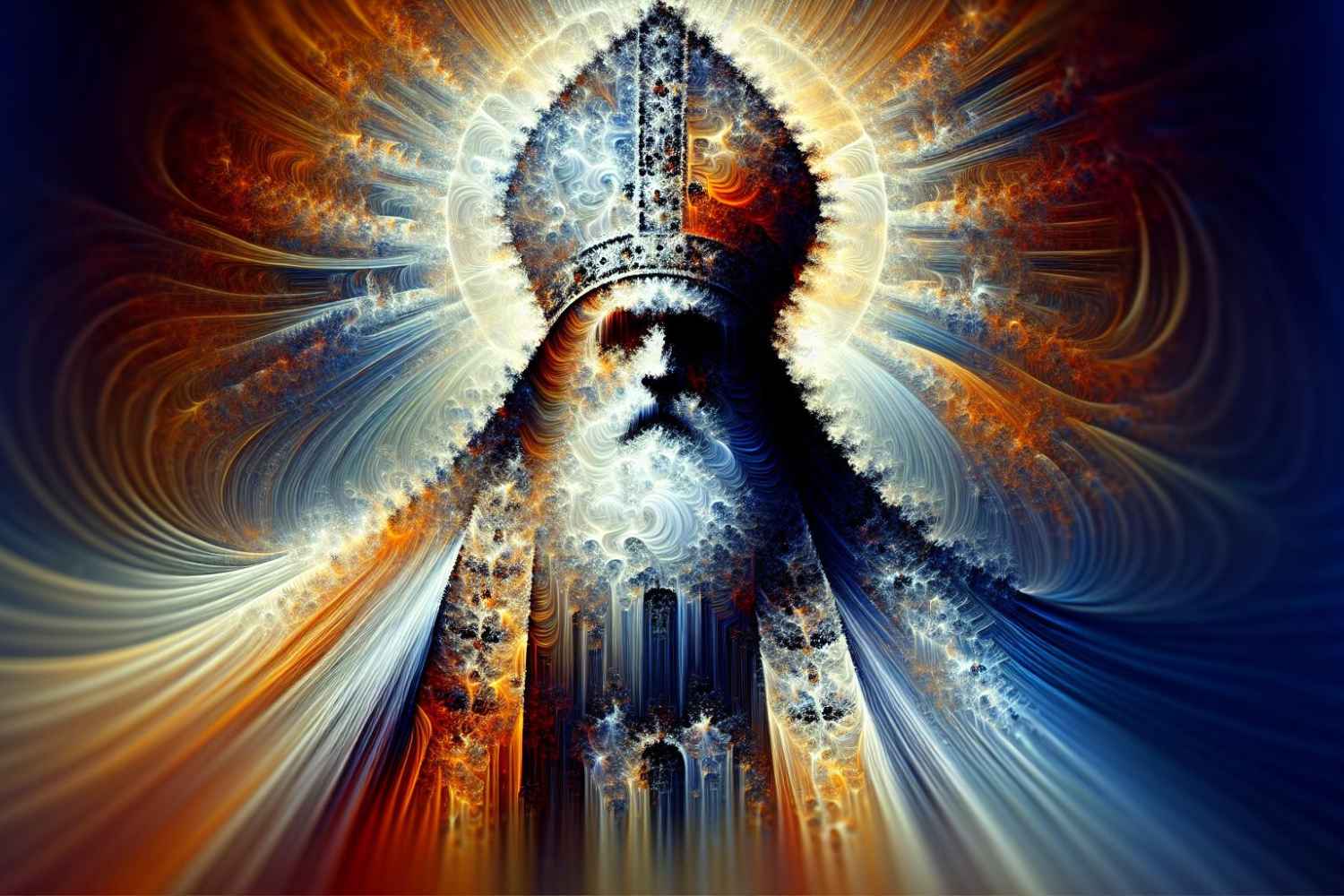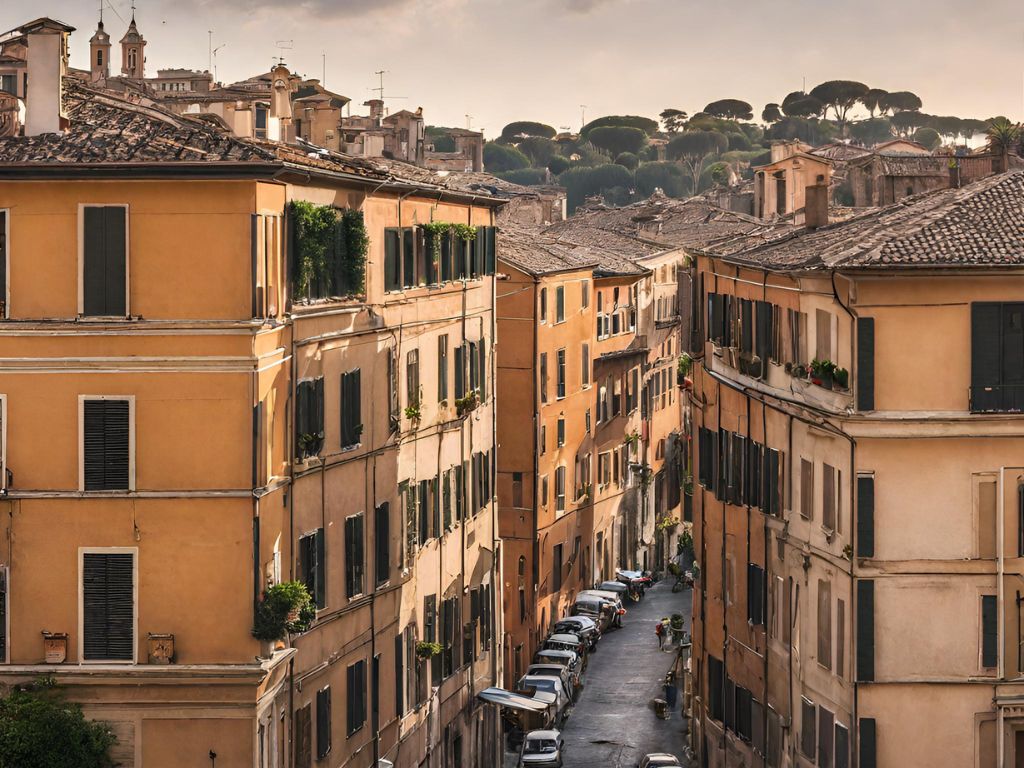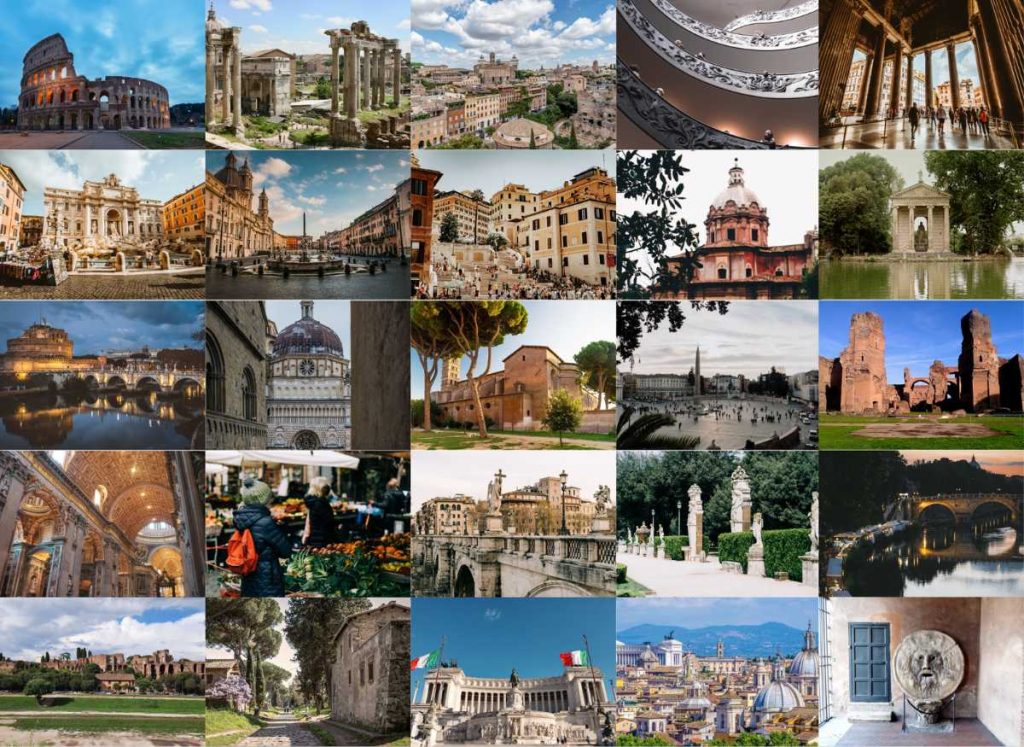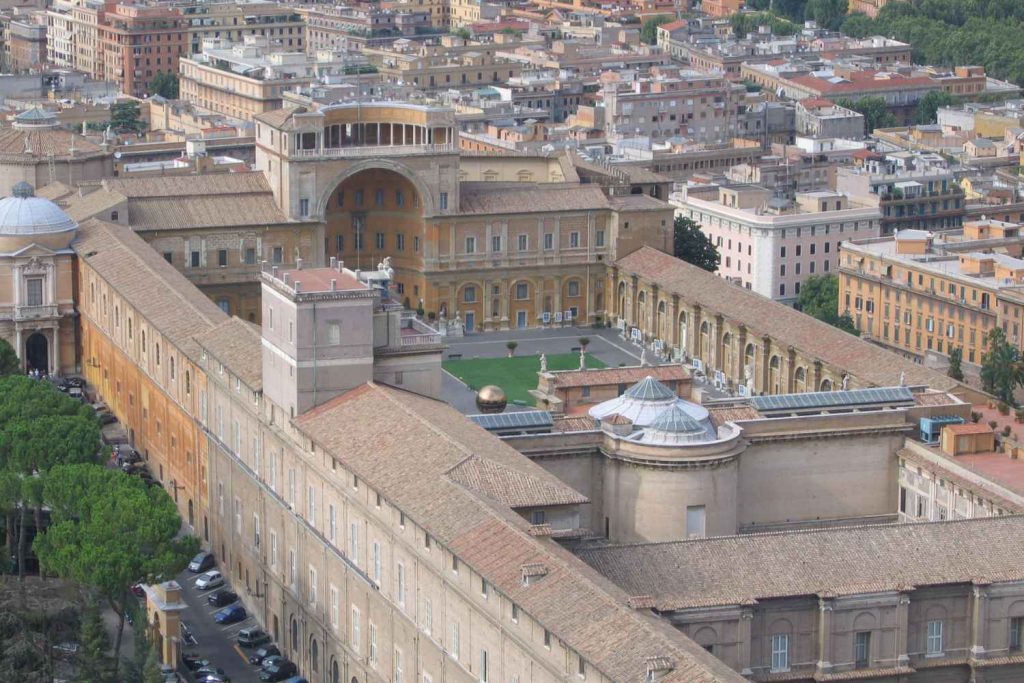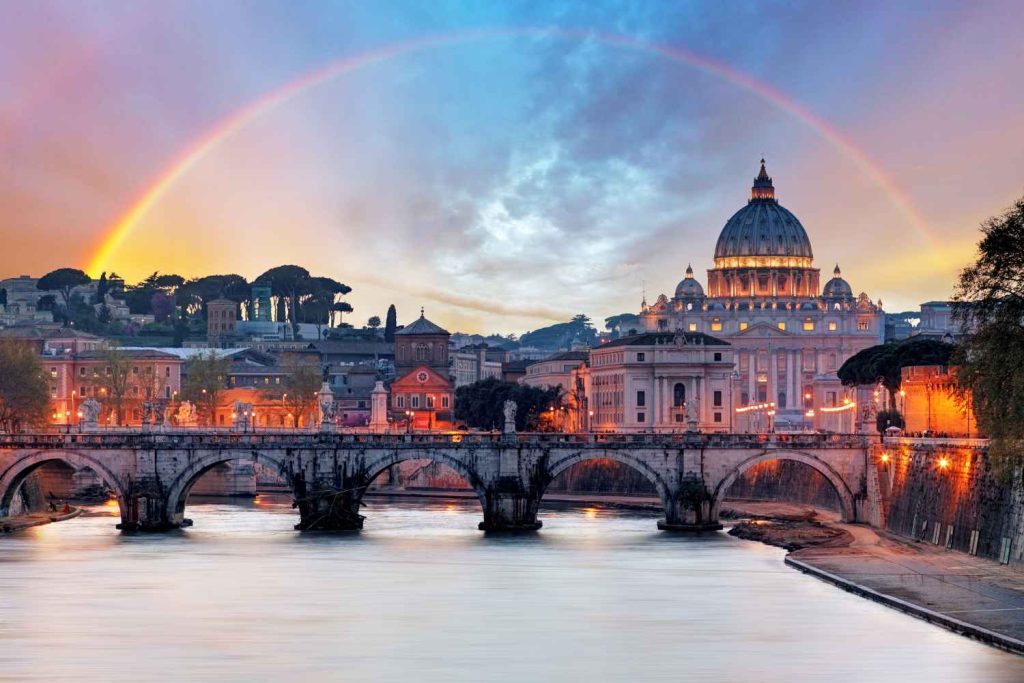The Holy See is the spiritual and governing authority of the Roman Catholic Church. As we delve into this fascinating topic, we will explore the history, significance, and role of the Holy See in the global religious landscape. Join us as we uncover the mysteries and traditions that surround this unique institution.
The Holy See, based in Vatican City, is not only the spiritual center for over a billion Catholics worldwide but also serves as a sovereign entity in international affairs. With its rich history dating back centuries, the Holy See holds immense influence and plays a crucial role in shaping global policies and promoting peace and justice. In this article, we will take you on a journey to discover the inner workings of this remarkable institution and its impact on both the Catholic faithful and the wider world.
So, whether you are a devout Catholic seeking a deeper understanding of your faith or simply curious about the Holy See’s role in today’s society, stay with us as we explore the intriguing world of the Holy See and uncover its enduring significance.
History of the Holy See
The history of the Holy See is intricately intertwined with the history of the Roman Catholic Church. It has been a prominent institution for centuries, playing a vital role in shaping the development of Christianity and influencing global affairs.
The origins of the Holy See can be traced back to the establishment of the Apostolic See by St. Peter, who is considered the first Pope, in the 1st century AD. Over time, the Papacy grew in significance, solidifying its position as the spiritual leader of the Catholic Church.
During the early centuries, the Papacy faced numerous challenges and underwent significant transformations. The Papal States, a territory in central Italy, emerged as a secular power in the 8th century, enabling the Pope to wield both spiritual and temporal authority.
However, political turmoil and conflicts brought about major changes to the Papacy in the 19th century. In 1870, the Italian government unified Italy and conquered the Papal States, forcing the Pope to retreat to the confines of Vatican City. This marked the end of the Pope’s temporal power, but not his spiritual authority.
Throughout its history, the Holy See has played a pivotal role in international diplomacy. Its status as a sovereign entity in international affairs grants it the ability to engage with nations on a global scale. The Holy See has been a strong advocate for peace, justice, and human rights, often acting as a mediator in conflicts and promoting dialogue between nations.
Today, the Holy See continues to be a respected voice in international relations and numerous organizations. It holds diplomatic relations with over 180 countries and is a member of various international bodies, including the United Nations and the European Union.
Understanding the history of the Holy See allows us to appreciate its enduring significance and influence. It provides a historical perspective on the institution, shedding light on its development, challenges, and impact on both Catholics and the wider world. The Holy See’s rich history continues to shape its role in global affairs, making it a fascinating subject to explore further.
Significance of the Holy See
The Holy See holds immense significance within the Catholic Church and in global affairs. Let’s explore the various aspects that make it a key player in shaping the world we live in today.
Moral Authority
As the spiritual and governing body of the Catholic Church, the Holy See holds significant moral authority. With approximately 1.3 billion Catholics worldwide, the teachings and pronouncements of the Holy See carry immense weight and influence over the lives of believers. Its doctrinal statements, encyclicals, and pastoral letters provide guidance on matters of faith, morality, and social justice.
International Diplomacy
Beyond its religious role, the Holy See is also an active player in international diplomacy. It maintains diplomatic relations with numerous countries and acts as an impartial voice in global affairs. The Holy See’s permanent observer status at the United Nations allows it to contribute to debates on a wide range of issues, from peacekeeping and disarmament to human rights and sustainable development.
Advocacy for Peace and Justice
The Holy See has long been a vocal advocate for peace, justice, and human rights. It actively engages with the international community to promote dialogue, reconciliation, and conflict resolution. Through its diplomatic efforts and engagement with international organizations, the Holy See seeks to address social injustices, tackle inequality, and protect the dignity of every human being.
Mediation and Conflict Resolution
The Holy See has played a crucial role in mediating conflicts and fostering peace in various parts of the world. Through dialogue and diplomacy, it seeks to bridge divides and encourage mutual understanding. The Holy See’s mediation efforts have aimed at bringing parties together, facilitating negotiations, and working towards peaceful and just resolutions.
Protecting the Vulnerable
Another significant aspect of the Holy See’s work is its commitment to protecting the vulnerable, including refugees, migrants, and victims of human trafficking. The Holy See advocates for their rights, raises awareness about their plight, and supports initiatives aimed at providing them with assistance and protection. This commitment stems from the Church’s belief in the dignity of every human person and its mission to serve those in need.
The Holy See holds great significance as a moral authority, an active participant in international diplomacy, an advocate for peace and justice, a mediator in conflicts, and a defender of the vulnerable. Its influence extends beyond religious matters, shaping global conversations and initiatives aimed at creating a more just and peaceful world for all.
Role of the Holy See in the Roman Catholic Church
The Holy See, based in Vatican City, holds a unique and pivotal role within the Roman Catholic Church. It serves as the central governing body and spiritual authority for more than 1.3 billion Catholics worldwide.
Papal Primacy: At the heart of the Holy See’s role is the Pope, who is considered the successor of Saint Peter and the Vicar of Christ on earth. As the supreme pontiff, the Pope provides guidance and direction to the Catholic Church, ensuring doctrinal unity and preserving the faith. The authority of the Pope is derived from his role as the Bishop of Rome and his ability to trace his apostolic succession back to Saint Peter.
Doctrine and Teachings: The Holy See plays a crucial role in formulating and promulgating Catholic doctrine and teachings. It has the authority to define matters of faith and morals, issuing encyclicals, apostolic exhortations, and other documents that guide the beliefs and practices of Catholics around the world. Through its various congregations and councils, the Holy See addresses contemporary issues and challenges, providing ethical and moral guidance to the faithful.
Appointment of Bishops: Another significant responsibility of the Holy See is the appointment of bishops. Bishops, as shepherds of their respective dioceses, are entrusted with the pastoral care of the faithful. The Holy See carefully selects and appoints bishops based on their qualifications, fidelity to Catholic teachings, and commitment to their pastoral duties. This ensures the preservation of the apostolic succession and the unity of the Church.
Relations with Other Churches and Religions: The Holy See actively engages in ecumenical dialogue with other Christian denominations and interreligious dialogue with different faith traditions. Through these efforts, it seeks to foster understanding, mutual respect, and cooperation among diverse religious communities. The Holy See’s commitment to dialogue promotes unity and peace in the world, while also highlighting the importance of religious freedom and human rights.
Promoting Charitable Works: In addition to its spiritual and doctrinal roles, the Holy See engages in various charitable works. Its charitable activities aim to alleviate poverty, address social injustices, and promote integral human development. The Holy See supports initiatives that advocate for the well-being of the marginalized and vulnerable, emphasizing the Church’s commitment to solidarity and social justice.
The Holy See as a Sovereign Entity
The Holy See is not just the spiritual and governing authority of the Catholic Church; it is also a sovereign entity. This unique status grants it certain rights and privileges on the international stage.
As the central governing body of the Catholic Church, the Holy See is headquartered in Vatican City, an independent city-state within Rome. Vatican City is the smallest recognized independent state in the world, covering an area of just 110 acres. The Holy See and Vatican City are often used interchangeably, but they are distinct entities. While the Holy See represents the Church’s authority and diplomacy, Vatican City is the physical territory where the Holy See operates.
The Holy See’s sovereignty is recognized by the international community, with diplomatic relations established with most nations around the world. It has observer status in various international organizations, including the United Nations, and maintains diplomatic missions in numerous countries. The Holy See also hosts embassies from many nations within Vatican City.
This sovereign status allows the Holy See to engage in diplomatic relations, sign international agreements, and participate in global affairs. It enables the Holy See to advocate for religious freedom, human rights, and other important issues on a global scale. The Pope, as the head of the Holy See, has the authority to engage in dialogue with world leaders and address international forums, promoting peace and justice.
Through its sovereign status, the Holy See is able to contribute to international discourse and shape global conversations on critical matters. Its involvement in initiatives related to sustainable development, conflict resolution, and the promotion of human dignity reflects its commitment to creating a more just and peaceful world.
The Holy See’s status as a sovereign entity grants it the ability to advocate for the Church’s values and engage on a global scale. Its diplomatic presence and participation in international organizations ensure that its voice is heard and respected in matters of global significance. The Holy See’s role extends beyond the spiritual realm, influencing international dialogue and seeking to create a better world for all.
Influence and Impact of the Holy See
The Holy See’s influence and impact extend far beyond the boundaries of the Catholic Church. As the central governing body and spiritual authority for over 1.3 billion Catholics worldwide, it holds a position of immense significance in global affairs.
Spiritual Influence
The Holy See plays a crucial role in shaping religious doctrine and practices within the Catholic Church. Through the guidance of the Pope, who serves as the head of the Holy See, it provides spiritual leadership and sets the moral compass for millions of believers.
Diplomatic Relations
In addition to its spiritual authority, the Holy See is also a sovereign entity with its own diplomatic relations. It has established diplomatic relations with most nations around the world, allowing it to engage in international dialogue and influence global affairs.
This unique position enables the Holy See to participate actively in diplomatic efforts, sign international agreements, and advocate for social justice and human rights. It uses its influence to promote dialogue, peace, and reconciliation, making a significant impact on global diplomacy.
Participation in Global Initiatives
Recognizing the importance of addressing pressing global challenges, the Holy See actively participates in various international initiatives. It strives to promote sustainable development, advance conflict resolution, and protect human dignity.
From contributing to discussions on climate change and environmental stewardship to advocating for social justice and the eradication of poverty, the Holy See brings its moral authority to the global stage. By raising awareness and facilitating dialogue, it works towards creating a more just and peaceful world for all.
Impact on International Dialogue
The Holy See’s involvement in international affairs goes beyond religious matters. It has a strong voice in shaping international dialogue on issues such as human rights, peacekeeping, and humanitarian assistance. Its interventions, statements, and positions carry weight and contribute to global discussions.
As a respected and influential entity, the Holy See has the power to have its concerns and perspectives heard and considered by decision-makers and world leaders. It leverages its position to advocate for the common good, fostering cooperation and collaboration among nations.
The Holy See’s influence and impact reach far beyond its role as the spiritual and governing authority of the Catholic Church. It actively engages in global affairs, shaping diplomatic relations, participating in global initiatives, and influencing international dialogue. The Holy See’s commitment to social justice, peace, and the promotion of human dignity underscores its mission to create a more just and peaceful world.
If you want to know more about The Holy See and the activities of Pope Francis, you may refer to Vatican’s official website.
Conclusion
The Holy See, as the central governing body and spiritual authority for over 1.3 billion Catholics worldwide, holds immense significance in global affairs. Beyond its role within the Catholic Church, the Holy See is a sovereign entity with diplomatic relations established with most nations. This unique position enables the Holy See to actively engage in international dialogue, sign international agreements, and advocate for social justice and human rights.
Through its involvement in initiatives related to sustainable development, conflict resolution, and the promotion of human dignity, the Holy See demonstrates its commitment to creating a more just and peaceful world. Its influence extends far beyond religious matters, as it actively participates in shaping international dialogue on topics such as human rights, peacekeeping, and humanitarian assistance.
As a respected and influential entity, the Holy See’s interventions, statements, and positions carry weight and contribute to global discussions. It leverages its position to advocate for the common good, fostering cooperation and collaboration among nations.
The Holy See’s involvement in global affairs reflects its mission to create a more just and peaceful world, making a significant impact on diplomatic efforts and international dialogue.
This article is part of our series on Vatican City. Explore more of the attractions of this fascinating City at the heart of Europe. It’s truly a must-visit if you’re a visitor to Rome.
More articles you might like...
You can find more great Rome content in the following categories;
All about Vatican City Commonly Asked Rome Questions Rome Accommodation Rome Food and Drink Rome History and Culture Rome Neighbourhoods Rome Tours and Must-See Attractions
